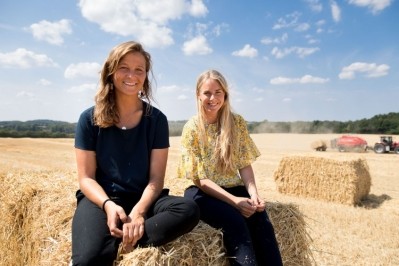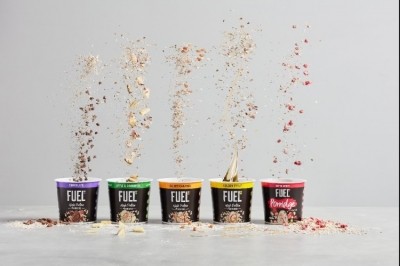Kellogg’s, PepsiCo, General Mills take bold steps to curb devastating effects of climate change on global food supply

The best chance of avoiding the worst impacts of climate change will need a collective effort by companies to align their businesses with the most ambitious goal of the Paris Agreement: to limit global warming to 1.5°C and reach net-zero by 2050.
As of 15 September 2020, more than 282 visionary corporate leaders had signed the commitment to take action.
Among that group are Kellogg’s – which recently announced it had exceeded its greenhouse gas (GHG) reduction goal ahead of schedule – and PepsiCo and General Mills – both of which laid out plans to reduce their own carbon footprint over the next decade.
100% renewable energy by 2050
Last week, Kellogg’s said it had exceeded its goal to reduce GHG emissions by 15% per pound of food produced one year ahead of schedule – part of its overarching goal to achieve 100% renewable energy in all its operations by 2050.
Since 2015, by switching to low carbon and renewable energy sources, purchasing renewable electricity and increasing energy efficiency, the breakfast cereal giant has reduced scope 1 & 2 GHG emissions in its manufacturing plants by more than 28%.
Kellogg is also partnering with its suppliers to reduce their emissions by 50%.
The Special K and Rice Krispies maker first laid out its sustainability commitments in 2008 and was one of the first companies to use Science-Based Target Initiative (SBTi) methodologies to help limit the global warming to below 1.5°C in 2015.
“The science is clear: In order to limit the catastrophic impacts of climate change, we must ensure warming does not exceed 1.5°C,” said Paul Simpson, CEO of CDP, one of the SBTi partners.
“The ambition is high but it’s achievable – and science-based targets give companies a roadmap for getting there. Corporations worldwide have an unprecedented opportunity to be at the very forefront of the transition to a net-zero economy – and there is no time to lose.”
To further mitigate GHG emissions, Kellogg’s has to-date helped more than 433,000 farmers around the world adopt regenerative agriculture practices through the Kellogg’s Origins programme.
Removing emissions of more than half a million cars on the road
New York-based PepsiCo is targeting a 2030 goal of using 100% renewable electricity across its entire company-controlled operations, with the same target set for its franchise and third-party operations by 2040.
The move could potentially reduce 2.5 million metric tons of greenhouse gas (GHG) emissions by 2040 – the equivalent of removing more than half a million cars from the road for an entire year.
The company recently announced it had renewed its partnership with the US Agency for International Development (USAID) to help build a more sustainable food system by empowering women in agriculture and expand agritech efforts in Egypt.
The five-year $20m Women’s Global Development and Prosperity (W-GDP) initiative will support women-owned small- and medium-enterprises and women-led PepsiCo suppliers in rural farming communities in Asia, the Middle East and Latin America and is aimed to help eliminate hunger for 150 million people.
In Egypt, PepsiCo-owned Chipsy for Food Industries and USAID plans to reach 2,500 smallholder potato farmers to improve their livelihoods by providing them with the technical know-how to implement sustainable agriculture practices.
This expands on the parent company’s Sustainable Farming Programme dedicated to testing and promoting a range of regenerative farming approaches, including smart agriculture technologies, irrigation practices and soil health management techniques.
From farm to fork to landfill
Cheerios and Pillsbury maker General Mills plans to slash its total GHG emission by 30% across the company’s entire ‘from farm to fork to landfill’ value chain over the next decade.
Its longer term goal is to become a net-zero emission company by 2050.
The Minneapolis, Minnesota-based conglomerate said its absolute GHG was determined using SBTi methodologies. General Mills – which first set out its emission-reducing strategy in 2005 – claims to be the first company to have published a goal approved by the SBTi in 2015.
Its newly reinforced 10-year pledge also includes reducing food loss and waste by 50% and advancing regenerative agriculture initiatives across General Mills’ sourcing footprint on one million acres within the decade.
“We’re proud to be making this ambitious goal which will take strong leadership and collaboration to drive holistic change,” said Jeff Harmening, chairman and CEO of General Mills.
“From farmers and suppliers, to where we make our food, to packaging producers and shippers, to retailers, and finally how we get it to our consumers’ tables, each step in our value chain has a critical role to play – that’s how we’ll tackle this to ensure we are doing more and taking bolder actions.”











